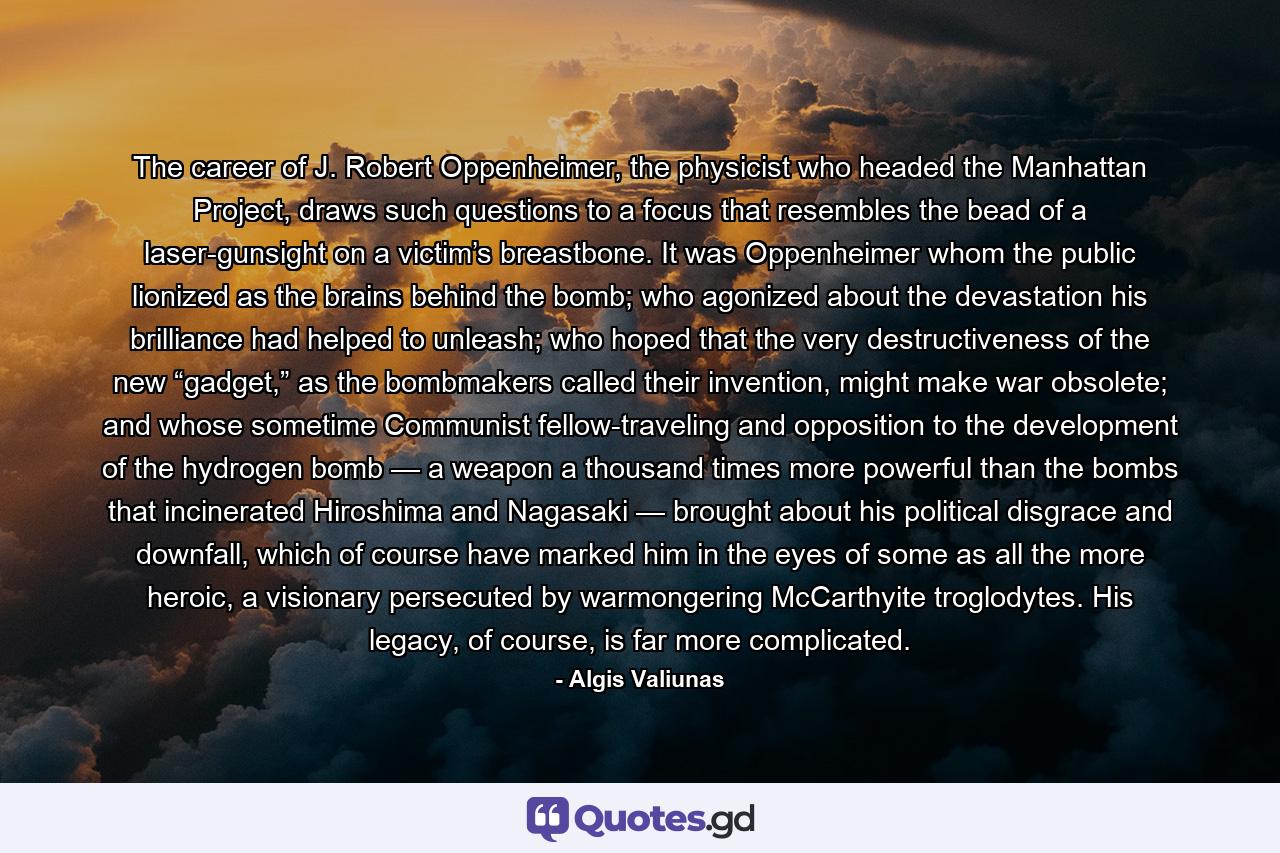The career of J. Robert Oppenheimer, the physicist who headed the Manhattan Project, draws such questions to a focus that resembles the bead of a laser-gunsight on a victim’s breastbone. It was Oppenheimer whom the public lionized as the brains behind the bomb; who agonized about the devastation his brilliance had helped to unleash; who hoped that the very destructiveness of the new “gadget,” as the bombmakers called their invention, might make war obsolete; and whose sometime Communist fellow-traveling and opposition to the development of the hydrogen bomb — a weapon a thousand times more powerful than the bombs that incinerated Hiroshima and Nagasaki — brought about his political disgrace and downfall, which of course have marked him in the eyes of some as all the more heroic, a visionary persecuted by warmongering McCarthyite troglodytes. His legacy, of course, is far more complicated.
